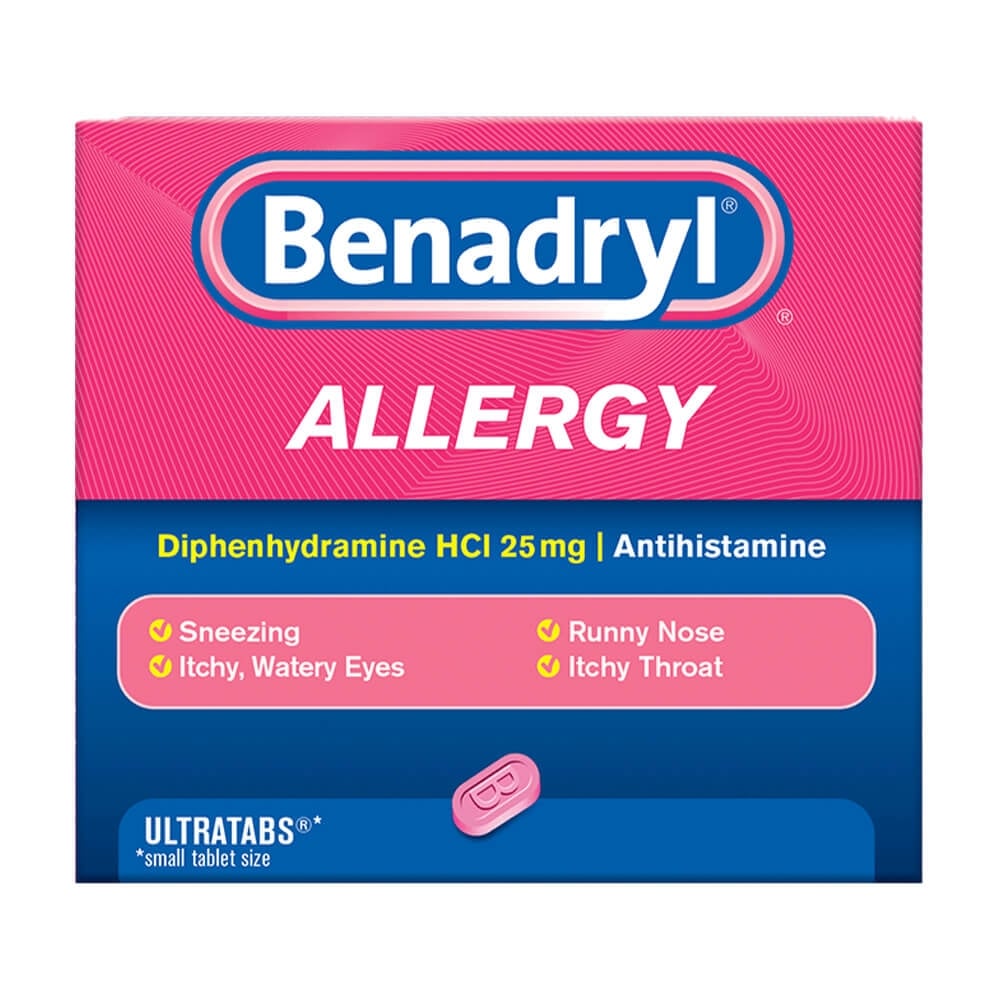Benadryl: Health Benefits & Risks
What are the health benefits of Benadryl?
Benadryl, also known by its generic name diphenhydramine, is an antihistamine medication that is used to relieve symptoms of allergies, hay fever, and the common cold such as itching, watery eyes, runny nose, and sneezing. It can also be used to relieve symptoms of allergic skin reactions, insomnia, motion sickness, and as a mild sedative.
The health benefits of Benadryl include:
- Allergy relief: Benadryl can effectively reduce symptoms of allergic reactions, such as itching, sneezing, runny nose, and watery eyes, by blocking the action of histamine, a substance in the body that causes these symptoms.
- Motion sickness: Benadryl can be used to alleviate symptoms of motion sickness, such as nausea, vomiting, and dizziness, by acting on the brain to reduce feelings of motion sickness.
- Mild sedative: Benadryl has a sedating effect and can be used to induce sleep or to reduce anxiety and tension. It is often used as a sleep aid in over-the-counter medications.
- Relief from itching: Benadryl can help relieve itching associated with allergic reactions, insect bites, and skin conditions like eczema and hives.
- Reduction of symptoms from the common cold: Benadryl can help reduce symptoms of the common cold, such as sneezing and runny nose, by drying up nasal secretions.
It’s important to note that while Benadryl can be effective for these purposes, it can also cause drowsiness and impair your ability to perform tasks that require alertness, such as driving. It’s important to use Benadryl only as directed and to talk to your healthcare provider before using it, especially if you have any underlying health conditions or are taking other medications.
What are the health risks of Benadryl?
Benadryl, or diphenhydramine, is generally safe when used as directed, but it can cause side effects and carry certain health risks. It’s important to be aware of these risks and discuss them with your healthcare provider before starting treatment. Some of the health risks associated with Benadryl include:
- Drowsiness and sedation: Benadryl can cause drowsiness and sedation, which can impair your ability to perform tasks that require alertness, such as driving or operating machinery. It’s important to avoid these activities until you know how Benadryl affects you.
- Dry mouth and urinary retention: Benadryl can cause dry mouth and difficulty urinating, especially in older adults. It’s important to stay well-hydrated and to talk to your healthcare provider if you experience these symptoms.
- Blurred vision: Benadryl can cause blurred vision, which can affect your ability to see clearly. It’s important to avoid activities that require clear vision until this side effect resolves.
- Constipation: Benadryl can cause constipation, especially in older adults. Eating a high-fiber diet and avoiding dehydration can help prevent constipation.
- Increased heart rate and palpitations: Benadryl can cause an increase in heart rate and palpitations, especially at higher doses. If you experience these symptoms, seek medical attention.
- Allergic reactions: Some people may be allergic to Benadryl and may experience symptoms such as rash, itching, swelling, dizziness, or difficulty breathing. If you experience any of these symptoms, seek medical attention immediately.
- Interaction with other medications: Benadryl can interact with other medications, including sedatives, tranquilizers, and monoamine oxidase inhibitors (MAOIs), increasing the risk of side effects. It’s important to talk to your healthcare provider before taking Benadryl if you are taking other medications.
- Overdose: Taking too much Benadryl can lead to overdose, which can cause symptoms such as confusion, hallucinations, seizures, coma, and even death. It’s important to take Benadryl only as directed and to seek immediate medical attention if you suspect an overdose.
It’s important to use Benadryl only as directed by a healthcare provider and to follow their instructions carefully. If you have any questions or concerns about Benadryl, talk to your healthcare provider.
TL; DR: Benadryl Review
Benadryl is a brand name medication that contains the active ingredient diphenhydramine. It is a type of antihistamine that is used to treat a variety of conditions, including allergies, itching, and insomnia.
Here are some key facts about Benadryl:
- Mechanism of action: Benadryl works by blocking the action of histamine, a chemical released by the body in response to an allergic reaction. It also has a sedative effect, which can help to promote relaxation and sleep.
- Indications: Benadryl is approved by the FDA to treat allergies, itching, and insomnia. It is also commonly used off-label to treat anxiety, nausea, and vomiting.
- Dosage: The usual dose of Benadryl for allergies is 25-50 mg taken every 4-6 hours as needed. For insomnia, the usual dose is 50-100 mg taken at bedtime.
- Side effects: Common side effects of Benadryl include:
- Drowsiness
- Dry mouth
- Blurred vision
- Difficulty urinating
- Headache
- Dizziness
- Warnings: Benadryl can cause serious side effects, including:
- Allergic reactions
- Respiratory depression
- Seizures
- Hallucinations
- Confusion
- Interactions: Benadryl can interact with other medications, including:
- Sedatives and tranquilizers
- Narcotics
- Antidepressants
- Muscle relaxants
- Pregnancy and lactation: Benadryl should be used with caution during pregnancy and lactation. It is recommended to consult with a healthcare provider before taking this medication during these times.
- Overdose: Benadryl can be dangerous if taken in large quantities. Symptoms of overdose may include:
- Confusion
- Dizziness
- Nausea
- Vomiting
- Seizures
- Coma
It’s important to note that Benadryl should only be used under the guidance of a healthcare provider and should be used in combination with a healthy lifestyle, including a balanced diet, regular exercise, and stress management.




